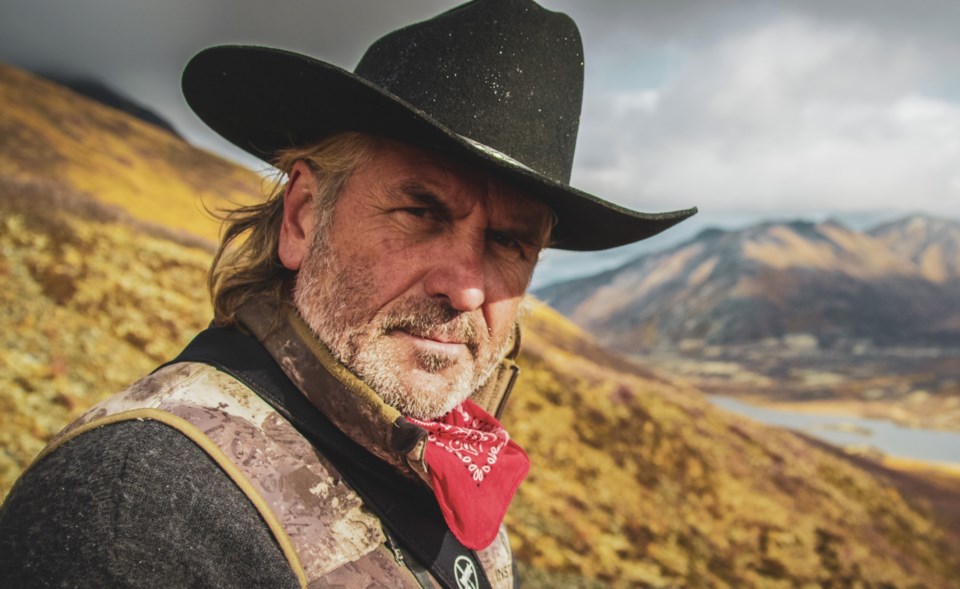YORKTON - You might term Jim Shockey a Renaissance man.
The term refers to a person with many talents or areas of knowledge, and that certainly fits Shockey, who was born in Saskatoon.
Today he might be best known as an outdoorsman.
Shockey owns several exclusive outfitting territories in Canada's wildlands, including the renowned Pacific Rim Guide Territory on Vancouver Island, British Columbia, and the famed 12,000 square mile Rogue River Outfitting in the Yukon Territory. His television productions have won 15 Golden Moose Awards from 2009-2017, and he is accomplished in archery, muzzle loader, and rifle.
But recently Shockey was among those announced by Water Polo Canada who will be in the third class of inductees to be inducted into the Canadian Water Polo Hall of Fame (CWPHOF), as part of a ceremony set to take place later this year. Shockey enters as a ‘Distinguished Alumni’.
“It’s a huge honour and a big surprise,” he said. “Being inducted into any hall of fame for sport is a huge honour. I’m humbled by it.”
Shockey, who actually was an All American swimmer who found he preferred water polo, said when he thinks about it, he comes up “with a 100 who deserve to be in here before me.”
The surprise element of the selection likely comes from the fact Shockey has been away from the sport since 1984, although in the years just ahead of his retirement he was certainly elite among Canadian water polo players.
After moving to Vancouver, Shockey became a leading member of the powerful B.C. men’s water polo teams of the late 1970’s and early 1980’s which won provincial, regional and national titles, an accomplishment he says stands out even today as a career highlight.
“The players I played with in B.C. are still good friends. (The team has a very special place in my heart,” he said.
Shockey also competed as a member of the Canadian men’s national team at the 1978 and 1982 World Aquatic Championships, missing out on a trip to the Summer Olympics in 1980, when Canada boycotted the Games in Moscow over the Soviet Union’s invasion of Afghanistan.
When Canada decided to centralize its water polo training for the 1984 Olympics in Los Angeles Shockey chose retirement.
“I was getting married. I couldn’t afford to move (to Ottawa) for six months,” he said.
So no Olympics, has he ever regretted the decision.
“Oh gosh no. I’d found my soulmate,” he said, adding he wouldn’t trade the life he chose for “a thousand gold medals.”
Admittedly growing up in Saskatchewan one might have thought Shockey would have been perhaps a hockey player.
“I was a swimmer first. My mother didn’t want me to lose my teeth like my cousins (playing hockey),” he said.
But the draw of water polo was in-part that is was more physical than swimming.
“It was far more challenging to me, and tougher,” Shockey said of water polo.
One thing Shockey did absorb from his youngest days in Saskatchewan was an undying love of the outdoors.
“Right from when I was a child I was fascinated by nature . . . hunting . . . fishing,” he said.
Hunting was a big part of life.
“If dad didn’t shoot a moose” the table might not have meat, said Shockey.
“I didn’t know you could buy a cow until I was in high school.”
It was as a youth the idea of field-to-table food became ingrained, time spent shelling peas, cutting beans and generally helping feed the family.
In time that love of all things outdoor led Shockey to write articles for various outdoor magazines, and ultimately into a career revolving around hunting, fishing and the outdoors which has included becoming a television personality in the field.
Today Shockey is well-known as a world-famous hunting guide and outfitter, for his conservation work, as well as an outdoor writer, a television producer and host for many popular hunting shows, and also as one of the world’s foremost experts on the Ethnocentric Folk Art forms from Western Canada.
It is that aspect of life that has Shockey booked as a keynote speaker at the upcoming Parkland Outdoor Show & Expo in Yorkton April 27 and 28.
Then to add to an already impressively diverse resume he also operates the Hand of Man Museum in Duncan, B.C. which he created.
The museum opened in a 17,000-square-foot space in 2018, and is filled with Shockey’s private collection of taxidermy animals, prehistoric skeletons, tribal artifacts, art, instruments, and anything else that has caught his eye through the years.
Oh yes, and now Shockey is also a best-selling write thanks to his debut novel Call Me Hunter.
The book, from Simon & Schuster New York is something Shockey said he has always wanted to accomplish, and that it has been well-received is a definite bonus.
“I’ve had this dream since I was 10-years old to write a novel, to be a novelist,” he said.
Shockey said he found the process of writing a pleasure.
“I love writing. A lot of people look at it as a chore but I live in the characters. I enjoy the process. I really do,” he said,
As for living in the characters Shockey said he often relates with a wink that 80 per cent of the book is autobiographical and factual, with another wink he suggests the other 20 per cent of the book is what would get someone arrested.
Book two is waiting for him to find keypad time, and the idea has always been that the story was a trilogy, he added.





